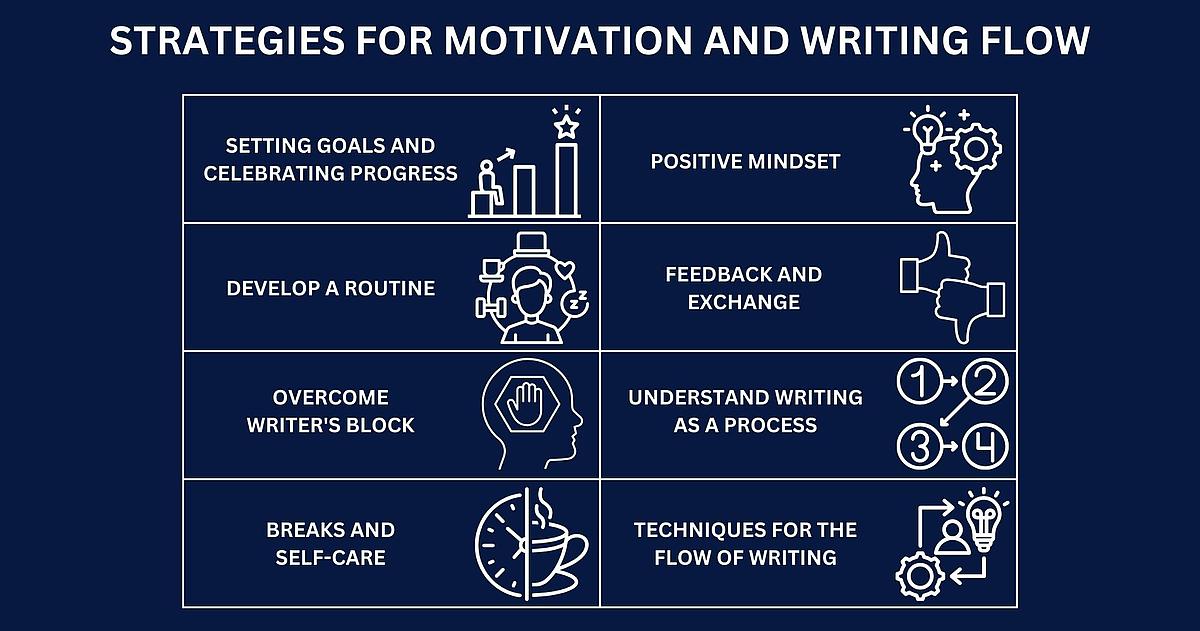This Website uses cookies to improve your visit on our website. More Info
Writing a bachelor thesis: step-by-step instructions for your top grade
Writing a Bachelor's thesis is an important milestone in your studies and often marks the transition from study to professional practice. For many students, the Bachelor's thesis is the first major piece of academic work that is written independently. This process can be challenging, but also very fulfilling. In this article, we provide an overview of the most important steps and tips to help you successfully plan, structure and write your own Bachelor's thesis. From finding a topic to researching and writing your thesis - here you can find out what's important.
Step 1: Choosing a topic
Choosing a suitable topic is the first and one of the most important steps in writing a Bachelor's thesis. A well-chosen topic can make the entire work process easier and keep motivation high. You should consider several aspects when choosing a topic:
- Interest and passion: choose a topic that really interests and excites you. Since you will be spending a lot of time on the work, it is important that you can commit to the topic.
- Subject relevance: Make sure your topic is relevant and current within your field of study. It should include a question that is significant in the scientific discussion.
- Feasibility: Check whether the topic can be dealt with within the time and resources available. Make sure that there is sufficient literature and data material available to produce a well-founded paper.
- Supervision: It is helpful to choose a topic that can be supervised by a lecturer who specializes in this area. Good supervision can make all the difference and provide valuable support.
Once you have found a topic, you should narrow it down and specify it clearly. This makes it easier to create a structured research question and a concrete work plan.
If you would like to learn how to write a term paper, then take a look at our dedicated page:
To the article on Writing a Term PaperStep 2: Find a supervisor
Choosing a suitable supervisor is a crucial step in writing your Bachelor's thesis, as they can make a significant contribution to the success of the project. Here are some tips for finding the right supervisor:
| Tip | Explanation |
|---|---|
| Research by subject area | Find out about the subject areas of the professors and lecturers in your field of study. Pay attention to who deals with topics that are close to your area of interest. |
| Courses and seminars | Think back to courses and seminars you have attended. Are there any lecturers whose teaching style particularly appealed to you? A supervisor who has already made a positive impression in courses could also be helpful as a supervisor. |
| Use office hours | Visit the office hours of potential supervisors to discuss your topic and ideas. Use this opportunity to find out whether you can imagine working together and whether the lecturers are interested in your topic. |
| Experience and capacity | Check whether the desired supervisor already has experience in supervising Bachelor's theses and whether he or she has the capacity to supervise another thesis. Some professors have many students and may not be able to give everyone the attention they need. |
| Supervision style | Clarify in advance how the supervision will be organized. Some supervisors offer regular meetings and intensive feedback, while others focus more on independent work. Think about which style suits you best. |
Once you have selected a supervisor, you should formally request and present your topic and a rough plan. Be open to suggestions and willing to make adjustments to further refine the topic. A good working relationship with your supervisor can provide valuable support and guidance throughout the writing process.
Step 3: Selecting the methodology
Choosing the right methodology is a key step in writing your Bachelor's thesis, as it determines how you systematically investigate and answer your research question. A well thought-out methodology ensures that your results are valid and reliable. Here are the essential steps for choosing the right methodology:

- Understanding the research question: Your research question largely determines which methodology is most suitable. Consider whether your question requires a qualitative, quantitative or mixed method. A clear and precise research question makes it easier to decide on the appropriate methodology.
- Qualitative vs. quantitative methods:
- Qualitative methods are suitable if you want to gain deeper insights into complex phenomena, opinions or behaviors. Typical qualitative methods are interviews, case studies or content analyses.
- Quantitative methods are ideal if you want to collect numerical data and analyze it statistically. These are often used when it comes to testing hypotheses or recognizing patterns in large amounts of data. Surveys, experiments and statistical analyses are all quantitative methods.
- Mixed methods: In some cases, it can be useful to combine qualitative and quantitative approaches. This is called a mixed methods approach and allows you to capture both detailed insights and general patterns.
- Availability of data: Consider what data you need and whether it is accessible. For example, if you are planning a survey, you need to make sure that you can reach a sufficient number of participants. For qualitative studies, you should check whether you have access to the required information or interview partners.
- Resources and time management: Your method should be feasible in the time frame and with the resources available. Some methods, such as experiments or extensive interviews, can be very time-consuming and require careful planning.
- Ethical considerations: Ensure that your methodology meets ethical standards. This is especially important if you are working with personal data or interacting directly with people. Approval from ethics committees is often required.
Once you have decided on a methodology, you should describe it in detail in your methods section of the paper and explain why it is the best choice for your research question. A transparent presentation of the method increases the credibility of your research and enables others to understand your work.
Step 4: Time planning & time management

Writing your bachelor thesis Step 4: Scheduling & time management
| Set overall time frame | Official time frame | Students usually have 3 to 6 months to write their Bachelor's thesis, depending on the university's requirements. |
|---|---|---|
| Individual planning | Plan your personal time frame. If you work part-time or have other commitments, it may make sense to use the entire period. | |
| Identify phases of the Bachelor's thesis | Finding a topic and research (2-4 weeks) | At the beginning, you should plan time to select a suitable topic and conduct an initial literature search. This phase lays the foundation for your thesis and is crucial for the rest of the process. |
| Create an exposé (1-2 weeks) | An exposé is a rough outline of your thesis, which you usually have to submit to your supervisor. It contains the research question, methodology and a rough timetable. | |
| In-depth literature research and theory section (3-4 weeks) | Here you should study the literature in depth and work out the theoretical framework of your thesis. | |
| Method development and data collection (4-6 weeks) | If your work is empirical, you need to plan time for the development of the methodology and data collection. Depending on the method, this step can be very time-consuming. | |
| Analysis of results (2-3 weeks) | After data collection, the results are analyzed. Allow enough time to carefully analyze and prepare the data. | |
| Writing the paper (4-6 weeks) | The actual writing process should be well planned. Set yourself daily or weekly goals in order to make steady progress. Start writing as soon as the first parts of your research are completed. | |
| Proofreading and revision (2-3 weeks) | Allow sufficient time for proofreading and revising your work. This is a crucial step to ensure the quality of your work. | |
| Allow for buffer time | Unforeseen delays | Delays can always occur, whether due to technical problems, unexpected difficulties with data collection or other unforeseen events. Therefore, plan buffer times to be prepared for such situations. |
| Proofreading and revision can also take longer than expected. Therefore, leave enough time for this. | ||
| Daily and weekly planning | Set daily goals | Set yourself small, achievable goals for each day. These can be specific page numbers, chapters or research tasks. |
| Set weekly goals | In addition to daily goals, it is helpful to set weekly goals to keep track of your progress and ensure you stay on schedule. | |
| Set milestones | Define clear milestones | E.g. completing the literature review or finishing a chapter to monitor your progress. |
| Breaks and rest | Take regular breaks | Make sure you take regular breaks to maintain your concentration and productivity. Longer breaks or short walks can help you clear your head. |
| Plan your rest | Don't overwork yourself. Plan time for relaxation and leisure activities to avoid burnout and stay motivated in the long term. | |
| Start writing early | Start early | Don't wait too long to start writing. Start writing the first chapters, such as the introduction or the theoretical section, at the same time as researching. This will help you spread the writing work over a longer period of time and avoid stress at the end. |
| Don't postpone submission until the last minute | Finish early | Try to finish your work a few days before the actual deadline. This gives you the opportunity to check final details and take care of technical problems, such as printing and binding, in peace. |
How long it takes you to write a bachelor thesis depends on various factors, such as your topic, the time available, your working style and the complexity of the research. However, effective time management is crucial to make the process smooth and stress-free. This is an overview of how you can plan the time frame for your Bachelor thesis. With well thought-out time management, you can effectively manage the writing process of your bachelor thesis and minimize stress. Realistic planning, regular reviews of your progress and taking breaks are key to success.
Step 5: Structure and outline of the bachelor thesis
The structure and outline of a Bachelor's thesis are crucial for presenting your research findings in a structured and comprehensible way. A clear and logical outline helps the reader to recognize the common thread of your argument and to quickly grasp the most important findings. Here is a proven structure that is used in many disciplines:
1. Cover sheet
- Title of the thesis
- Name and matriculation number of the author
- Name of the supervisor
- Name of the university and degree program
- Date of submission
2. Abstract/Summary
- Short summary of the work (approx. 150-300 words)
- Description of the research question, methodology, main results and conclusions
- The aim is to give the reader a quick overview of the content of the thesis
3. Table of contents
- Overview of all chapters and subchapters with page numbers
- Should be clearly and logically structured so that the reader can follow the structure of the work
4. List of figures and tables (if applicable)
- List of all figures and tables used in the work with page numbers
- Numbering and labeling according to the formal requirements
5. List of abbreviations (if applicable)
- List of all abbreviations used in the work with explanations
6. Introduction
- Introduction to the topic of the paper
- Presentation of the problem and relevance of the topic
- Formulation of the research question or hypothesis
- Objectives of the thesis
- Overview of the structure of the thesis (brief description of the chapter structure)
7. Theoretical framework
- Presentation and explanation of the theoretical foundations and concepts relevant to the topic
- Overview of the current state of research
- Definition of central terms and concepts
- Presentation of models or theories used in the thesis


8. Methodology
- Description of the research methods used
- Justification of the choice of methods
- Description of the research design (e.g. qualitative or quantitative methods, data collection, sample selection)
- Explanation of the procedure for data collection and analysis
- Notes on possible limitations of the method
9. Results
- Presentation of the research results
- Presentation of the data and its analysis
- Use of figures, tables and diagrams for illustration
- Objective and factual presentation of the findings without interpretation
10. Discussion
- Interpretation of the results in the context of the research question
- Comparison of the results with the existing literature and the theories presented in the theoretical framework
- Discussion of possible causes and implications of the results
- Indications of limitations of the study and suggestions for future research
11 Conclusion
- Summary of the most important findings of the study
- Answering the research question
- Presentation of the significance of the results for the field of research
- Outlook for further research or practical applications
12. Bibliography
- Complete list of all sources cited in the paper
- Formatting according to the specifications of the chosen citation style (APA, MLA, Chicago, etc.)
- Alphabetical order according to the authors' surnames
13. Appendix (optional)
- Additional materials that are relevant to the understanding of the paper but would interrupt the main text too much (e.g. questionnaires, raw data, additional tables or figures)
- Each appendix should be numbered and titled
14. Affidavit
- Declaration by the author that the work was prepared independently and without unauthorized help
- Statement that all sources used have been cited
- Signature and date
This structure may vary slightly depending on the subject area and specific requirements, but in general these elements should be included. A clear and well-thought-out structure not only makes it easier to write, but also to read and understand your work.
Step 6: Literature research
Literature research is a key step in writing your Bachelor's thesis, as it forms the basis for your academic work. Thorough research will give you an overview of the current state of research on your topic and enable you to place your own research question in a scientific context. Here are the steps you should follow when researching the literature:
| Define the aim of the literature research | Delimit the topic | Specify your topic and identify the specific aspects you want to research. A clear question will help you to search for relevant literature in a targeted manner. |
|---|---|---|
| Record the state of research | Gain an overview of the existing state of research in order to identify gaps and discussions that you can build on. | |
| Identify suitable sources | Primary and secondary literature | Distinguish between primary literature (e.g. original studies, empirical studies) and secondary literature (e.g. reviews, theoretical papers). Both are important for well-founded work. |
| Academic databases | Use specialized databases such as Google Scholar, JSTOR, SpringerLink, PubMed or IEEE Xplore to search for scientific articles and books. | |
| Libraries | Search the catalogs of your university library for books, dissertations and other printed works. Many libraries also offer access to digital resources and e-books. | |
| Bibliographies | Search the bibliographies of relevant works to find additional sources. | |
| Develop search strategies | Keywords | Define a list of keywords and synonyms that are relevant to your research question. Vary these terms to obtain different search results. |
| Boolean operators | Use Boolean operators (AND, OR, NOT) to refine your search and increase the number of relevant results. | |
| Citation search | Check which recent works have been cited frequently, as these are often particularly influential for the topic. | |
| Evaluate relevant literature | Read abstracts and summaries | Start by reading abstracts to quickly decide whether an article or book is relevant to your work. |
| Quality of sources | Pay attention to the reputability of the sources, e.g. the reputation of the journal or publisher, the academic background of the authors and the number of citations. | |
| Timeliness | In many fields, it is important to consider current research results. Make sure that the studies and papers used have been published as recently as possible. | |
| Organize literature | Literature management | Use literature management programs such as Zotero, Mendeley or Citavi to systematically store and organize your sources. These tools also make it easier to create bibliographies. |
| Notes and excerpts | Take systematic notes and excerpts while reading, mark important passages and write short summaries to help you keep track. | |
| Critically analyze literature | Critical analysis | Critically evaluate the literature and question the arguments, methods and conclusions of the authors. This will help you to develop your own positions and make well-founded statements in your work. |
| Identify gaps | Pay attention to where there are research gaps that you could fill in your Bachelor's thesis. This shows that your work makes a real contribution to the topic. | |
| Use the results of the literature review | Theoretical framework | Integrate the researched literature into the theoretical framework of your thesis and build on it to answer your research question. |
| Develop your own argument | Use the literature you have collected to support your argument and lead a well-founded discussion. |
Thorough literature research lays the foundation for a scientifically sound bachelor thesis. Through a systematic approach, critical analysis and targeted selection of relevant sources, you create the basis for a convincing and well-founded thesis.
Step 7: Scientific writing
Scientific writing is a central aspect of your Bachelor's thesis, as it is not only about presenting your research findings, but also formulating them clearly, precisely and comprehensibly. A good scientific style lends credibility to your work and demonstrates your ability to explain complex issues in an understandable way. Here are the most important steps and tips for academic writing:

- Clarity and precision
- Prefer simplicity: Use clear and precise wording. Avoid unnecessarily complicated sentences and technical jargon that is not absolutely necessary.
- Concise expression: Formulate your thoughts as precisely and to the point as possible. Long and convoluted sentences often lead to confusion.
- Structured argumentation
- Logical structure: Ensure a clear structure and logical flow in your argumentation. Every statement should be comprehensible and well-founded.
- Red thread: Make sure that your work follows a common thread and that the individual chapters and sections build on each other in a meaningful way.
- Objectivity and neutrality
- Objective presentation: Formulate your statements objectively and factually. Avoid judgmental or subjective formulations that are not supported by scientific evidence.
- Supporting statements: Every claim should be supported by literature or your own research findings. Avoid unproven or speculative statements.
- Correct citation style
- Adhere to citations: Make sure you cite correctly according to your university's guidelines. This applies to both direct quotations and paraphrases.
- Avoid plagiarism: Make sure that all sources used are cited correctly to avoid plagiarism. Accusations of plagiarism can have serious consequences.
- Observe formalities
- Consistent style: adhere to the formal requirements for academic papers, such as font, font size, line spacing and margins.
- Structure and headings: Use a clear structure with meaningful headings that provide orientation for the reader.
- Transitions and coherence
- Smooth transitions: Ensure smooth transitions between sections and chapters to maintain the flow of reading. Avoid abrupt jumps in the argumentation.
- Coherence of arguments: Make sure that your arguments are coherent and consistent.
- Avoid typical errors
- Spelling and grammar: Pay attention to correct spelling, grammar and punctuation. Errors can affect the professional impression of your work.
- Avoid redundancies: Do not repeat arguments unnecessarily. Each paragraph should present a new aspect of your argument.
- Proofreading and revision
- Multiple read-throughs: Read through your work several times and revise it to eliminate linguistic inaccuracies and logical errors.
- Get feedback: Have your work proofread by other people, such as fellow students or your supervisor. External feedback can help to discover blind spots.
- Appealing writing style
- Fluent language: Aim for a fluent and readable writing style that captures the reader's interest without losing academic rigor.
- Active vs. passive voice: Preferably use the active voice to make your sentences more lively and direct. The passive sentence should only be used when the focus is on the action and not on the actor.
- Ethical and scientific integrity
- Honesty in presentation: Present your results and their interpretation honestly. Distortions or concealment of data is unethical and can undermine the credibility of your work.
- Scientific responsibility: Consider the ethical implications of your research and write in such a way that your work makes a responsible contribution to the scientific debate.
By observing these principles, you ensure that your Bachelor's thesis is not only convincing in terms of content, but also in terms of language. A clear, precise and factual style is the hallmark of a good scientific paper and contributes significantly to its success.
Step 8: Strategies for motivation and writing flow
Motivation and the flow of writing (writing flow) are decisive factors in writing your Bachelor's thesis efficiently and with a good result. Many students struggle with writer's block or the feeling of not making progress. Here are some strategies to stay motivated and maintain a constant writing flow:
Overview: Strategies for motivation and writing flow
This graphic shows an overview of the strategies that help you maintain your motivation and writing flow.

Explanation: Strategies for motivation and writing flow
By applying these strategies, you can improve your motivation and writing flow, which will help you to write your Bachelor's thesis efficiently and successfully.
Setting goals and celebrating progress
- Small milestones: Set yourself realistic, daily or weekly goals, e.g. a certain number of pages or sections. Small successes motivate you and make your progress visible.
- Document your progress: Keep a record of what you have achieved. Visualized progress (e.g. in the form of a checklist or a bar chart) can be very motivating.
- Rewards: Reward yourself when you have achieved a goal, be it with a break, a snack or a leisure activity.
Develop a routine
- Fixed writing times: Establish set times for writing. A daily routine helps to maintain the flow of writing and turn work into a habit.
- Create a working environment: Create a pleasant and distraction-free workplace. Make sure you have a tidy environment in which you can concentrate.
- Rituals: Develop small rituals before writing, such as a cup of tea, a short warm-up with brainstorming or going over the last thing you wrote.
Overcome writer's block
- Free writing: If you're stuck, try to just write away without worrying about the perfect wording. It often helps to get the flow of writing going by writing down your thoughts freely.
- Mind maps and sketches: Use mind maps or outlines to organize your ideas and see more clearly how you want to proceed.
- Change topics: If you are stuck on a certain section, temporarily switch to another part of your work. Sometimes it helps to continue writing another chapter.
Breaks and self-care
- Regular breaks: Plan regular breaks to maintain your concentration. Short exercise breaks or a walk can work wonders.
- Get enough sleep: Make sure you get enough sleep to stay mentally fit and creative. Exhaustion often leads to a loss of motivation and writer's block.
- Diet and exercise: A balanced diet and regular physical activity support your mental performance and motivation.
Positive mindset
- Self-motivation: Remind yourself why you chose the topic and what significance the Bachelor's thesis has for your academic and professional career. Focus on the positive aspects of your work.
- Self-talk: Positive self-talk can help you overcome doubts and negative thoughts. Tell yourself that you are capable and well prepared.
- Visualization: Imagine yourself successfully completing and handing in your work. This visualization can have a motivating effect.
Feedback and exchange
- Get feedback: Exchange ideas with fellow students or your supervisor to get feedback. Constructive feedback can help to eliminate uncertainties and provide new motivation.
- Writing groups: Consider joining a writing group where you can motivate and support each other.
Understand writing as a process
- Allow drafts: Accept that the first draft doesn't have to be perfect. Knowing that you can revise later takes the pressure off.
- Step-by-step approach: See writing as a process that takes time. Start with rough drafts and refine them as you go.
Techniques for the flow of writing
- Pomodoro technique: Work in short, intensive sections (e.g. 25 minutes) with subsequent breaks. This promotes concentration and writing flow.
- Morning pages: Write three pages every morning on anything that comes to mind. This helps to promote the flow of writing and to clear your head for the actual work.

If you need more help with motivation and writing flow, then take a look at our pages on study strategies and learning types, for example.
To the overview page of the GuideStep 9: Proper citation

Writing a bachelor thesis Step 9: Correct citation
| Why cite? | Comprehensibility | Citations enable the reader to understand your arguments and look up the sources themselves. |
|---|---|---|
| Acknowledgement of the original work | By citing, you acknowledge the work of other scientists and respect their intellectual property. | |
| Avoiding plagiarism | Proper citation protects you from unintentionally being considered a plagiarist, which can have serious academic consequences. | |
| When to cite? | Direct quotations | If you quote an author's exact words, you must enclose the quotation in quotation marks and cite the source directly. |
| Paraphrases | Even if you reproduce an author's ideas in your own words, you must cite the original source. | |
| Facts and data | Cite the source for specific facts, statistics or data that are not generally known or that you have not collected yourself. | |
| Citation methods | Direct quotation | Use direct quotations sparingly and only when the exact wording is important. Put the quote in quotation marks and cite the source directly after it. Example: “Scientific work requires accuracy and care” (Müller, 2023, p. 45). |
| Indirect quotation (paraphrase) | Summarize the author's statement in your own words and cite the source. Example: Scientific work must be carried out precisely and carefully (cf. Müller, 2023, p. 45). | |
| Citation styles | APA style | Often used in the social and behavioral sciences. |
| MLA style | Widely used in the humanities. | |
| Chicago style | Often used in history and some other disciplines. | |
| Harvard style | Very common and accepted in many disciplines. | |
| Bibliography | Completeness | List all sources cited or mentioned in the paper. Every citation in the text must be included in the bibliography. |
| Formatting | Follow the specific guidelines of your citation style for formatting the bibliography. Ensure consistency in the presentation. | |
| Alphabetical order | As a rule, sort the bibliography alphabetically according to the authors' last names. | |
| Observe citation rules | Author citation | Always name the author or authors of the source. If there are several authors, list them in the order in which they appear on the source. |
| Year and page number | State the year of publication and, in the case of direct quotations, the page number. | |
| Electronic sources | For online sources, give the full URL and the date of retrieval if the content may change. Example: Müller, T. (2023). Basics of scientific work. Retrieved August 28, 2024, from http://www.beispielwebsite.de | |
| Dealing with different types of sources | Books | Enter the author, title, edition, publisher and year of publication. |
| Articles in journals | Author(s), title of the article, name of the journal, year, issue number, page numbers. | |
| Internet sources | Author(s), title of the page or document, publication date or retrieval date, complete URL. | |
| Plagiarism check | Own thoughts vs. other people's ideas | Consider for each sentence whether it is based on a source or represents your own idea. Cite if it is someone else's idea. |
| Plagiarism software | Use plagiarism checks to ensure that you have not inadvertently not cited any sources. | |
| Special cases | Secondary citations | If you cite a quotation from a source that you have not read yourself, indicate this. Example: (quoted from Müller, 2023, p. 45). |
| Multiple works by one author | If an author has published several works in one year, add letters to distinguish them (e.g. Müller, 2023a; Müller, 2023b). | |
| Avoid common mistakes | Missing references | Every idea taken, even if it has been reformulated, must be cited. |
| Inaccurate citation | Make sure that quotations are reproduced exactly. Changes or omissions must be indicated. | |
| Incorrect formatting | Stick strictly to the citation rules of the chosen style. Incorrect citation can affect your credibility. |
Correct citation is an essential part of academic work and serves to make the sources on which your argumentation is based transparent and to give due credit to the authors of the ideas. Errors in citation can have serious consequences, including accusations of plagiarism. These are the most important steps and rules you should follow when citing correctly. By citing carefully and correctly, you show respect for the work of other scientists and ensure the scientific quality and integrity of your own work. It is therefore advisable to familiarize yourself with the citation rules at an early stage and to apply them consistently.
Step 10: Proofreading
Proofreading is the final step before submitting your Bachelor's thesis and is crucial to ensure that your work is error-free, clear and well-structured. In this step, you not only check spelling and grammar, but also the coherence of the content and compliance with the formal requirements. Here are the most important steps for effective proofreading:

- Allow time
- Buffer time: Allow sufficient time for proofreading, ideally at least a week. Avoid putting this step off until the last minute to avoid stress and careless mistakes.
- Several passes: Proofreading requires several passes, each of which should focus on different aspects of the work.
- Take a break
- Gain distance: Take a short break of a few days after writing before you start proofreading. A little distance will help you to look at your work with fresh eyes and recognize errors more easily.
- Check spelling and grammar
- Automatic tools: Use spelling and grammar checkers such as those built into word processing programs. Be careful, however, as these don't always catch all errors or make sensible suggestions.
- Manual checking: Read each sentence carefully and look for common errors such as missing commas, typos or incorrect sentence structure.
- Read backwards: Read paragraphs or sentences backwards (from back to front) to focus on spelling without being distracted from the content.
- Check content coherence and logic
- Red thread: Make sure that your argumentation is logical and stringent. Each section should clearly lead to the next and the entire paper should follow a common thread.
- Coherence: Make sure that all parts of your work are consistent with each other, especially the introduction, the research question, the methodology and the conclusion.
- Check formal requirements
- Citation style: Check the consistency and accuracy of your citations and bibliography. Make sure that all sources are formatted correctly and consistently.
- Formatting: Check compliance with the formal requirements of your university, such as font, font size, margins, line spacing and page numbers.
- Figures and tables: Ensure that all figures and tables are correctly numbered and labeled and that they are properly referenced in the text.
- Improve style and expression
- Clarity: Revise sentences that are unclear or too complicated. The aim is to make your arguments clear and understandable.
- Remove redundancies: Delete repetitions and unnecessary repetitions. Each piece of information should only be presented clearly and concisely once.
- Active voice: Use the active voice rather than the passive voice to make your statements more dynamic and precise.
- Get feedback from others
- External proofreaders: Ask friends, fellow students or family to read your work. They can spot errors that you may have missed and give you feedback on the clarity and logic of your argument.
- Professional proofreaders: If possible, also consider professional proofreading services that specialize specifically in academic papers.
- Check readability and layout
- Headings: Make sure the headings are consistent and the hierarchy is clearly recognizable.
- Paragraph structure: Make sure that the paragraphs are clearly and sensibly structured. Each paragraph should express a clear idea and lead logically to the next.
- Page numbering: Check the page numbering and the correct allocation of the table of contents, list of figures and bibliography.
- Plagiarism check
- Plagiarism check: Use plagiarism software to ensure that all cited sources are correct and that you have not unknowingly included any plagiarism.
- Final check
- Overall impression: Read through the entire paper again to check the overall impression. Pay attention to the readability and flow of the text.
- Final changes: Make final adjustments and corrections before printing or submitting the paper.
Careful proofreading ensures that your bachelor thesis is of the highest standard in terms of language and content and makes a professional impression. It is the final but crucial step to ensure that your hard work is presented in the best possible way.
Checklist: Bachelor thesis tips
Writing your bachelor's thesis is a challenging task that requires both academic rigor and ethical integrity. Here are some important tips to help you successfully navigate the process, including advice on plagiarism checking, the use of ghostwriters and artificial intelligence (AI).
| Plagiarism check | Ensure independence | Your work must reflect your own intellectual achievement. Every quote and every external idea you use must be correctly cited. |
|---|---|---|
| Use plagiarism checking software | Use plagiarism checking software (e.g. Turnitin, PlagScan, Grammarly or your university's plagiarism checking tools) to ensure that your work does not contain any unconscious plagiarism. These tools compare your text with a large database of published works and other sources. | |
| Paraphrase instead of copying | Avoid copying text passages word for word, except for direct quotations. Instead, you should reproduce other people's ideas in your own words and always cite the source. | |
| Ghostwriting | Legal and ethical concerns | Using a ghostwriter is not only unethical, but also illegal in most cases. If it turns out that you did not write your bachelor's thesis yourself, this can have serious consequences, such as the revocation of your degree. |
| Independent work | The process of writing a Bachelor's thesis is an important learning experience that strengthens your ability to conduct independent research and academic work. Use this opportunity to develop your skills. | |
| Use of Artificial Intelligence (AI) | AI tools as an aid | AI tools, such as text suggestion or grammar checking programs, can help you to optimize your work. However, these should only be used as a supporting tool and not as a replacement for your own work. |
| Maintain originality | Use AI to develop ideas or improve your grammar, but make sure the content you submit reflects your own thoughts and conclusions. | |
| Clearly mark AI sources | If you use content generated by AI tools, be transparent about it and consider your university's ethical guidelines. In some cases, the use of such tools may be restricted or prohibited. | |
| Time management | Start early | Start planning, researching and writing your bachelor thesis early. This will give you enough time to complete all phases thoroughly and allow for buffer time. |
| Divide tasks | Divide the writing process into manageable tasks and set clear deadlines for each section. This will prevent you from feeling overwhelmed and losing track. | |
| Take advantage of support | Regular communication | Use the support of your lecturer to receive regular feedback. Good communication helps to identify and solve problems at an early stage. |
| Clarify open questions | Don't be afraid to ask questions, be it about the methodology, structure or content of your work. | |
| Careful literature work | Comprehensive research | A thorough literature search forms the basis of your work. Make sure that your sources are up-to-date and relevant. |
| Adhere to citation rules | Learn the citation rules of your subject area and apply them consistently. Proper citation is essential to avoid accusations of plagiarism. | |
| Proofreading and revision | Several rounds | Plan several rounds of proofreading. Check not only spelling and grammar, but also the content thread and the comprehensibility of your argumentation. |
| External help | Have someone else proofread your work. External readers can spot errors or ambiguities that you might not notice yourself. | |
| Health and well-being | Schedule breaks | Don't overexert yourself. Regular breaks are important to maintain your concentration and creativity. |
| Self-care | Make sure you get enough sleep, eat healthily and exercise. Your mental and physical well-being has a significant impact on your performance. | |
| Revision and feedback | Obtain constructive criticism | Use feedback from fellow students or your supervisor to identify weaknesses in your work and make improvements. |
| Self-reflection | Reflect self-critically on whether all parts of your work are coherent and well formulated. It often helps to read the work again after a short break. |
By following these tips, you can ensure that your Bachelor's thesis is not only convincing in terms of content, but also meets the formal and ethical requirements. Take the opportunity to master this challenge independently and successfully in order to grow both academically and personally.
Similar Study Guide Topics:
Writing a term paper
Study strategies
Learning types
Studying in Munich
FAQ
No, ghostwriting for a Bachelor's thesis is not legal. If you submit a thesis that you did not write yourself, this is against the examination regulations and can have serious consequences such as the withdrawal of your degree.
In the methodology of your Bachelor's thesis, describe which research approaches and methods you have chosen and why. Explain how you collected and analyzed data and show that your approach is appropriate to answer the research question. Make sure to be clear and precise so that your work is comprehensible.
It can be challenging to write a Bachelor's thesis, but with good planning and motivation it is doable.
Yes, you can write your Bachelor's thesis in English if your university allows it. At Munich Business School, for example, it is permitted and often happens that papers, including the Bachelor's thesis, are written in English.
It is best to write your bachelor thesis in Microsoft Word or LaTeX.
Interested in a study program? Request our information material now!
More exciting degree programs in Munich













